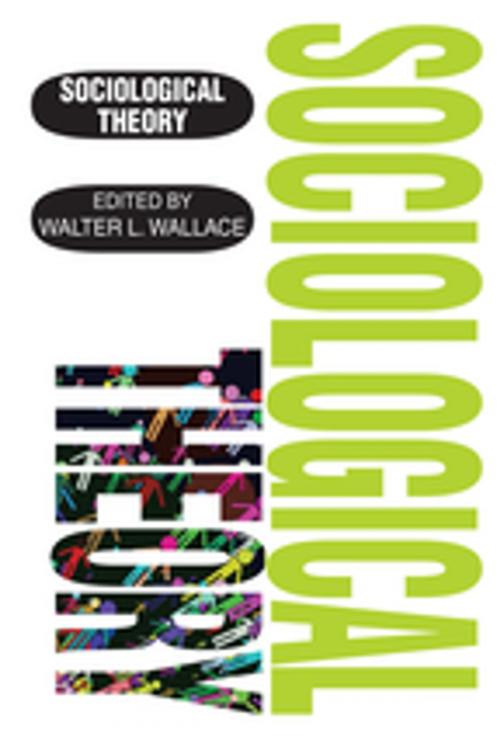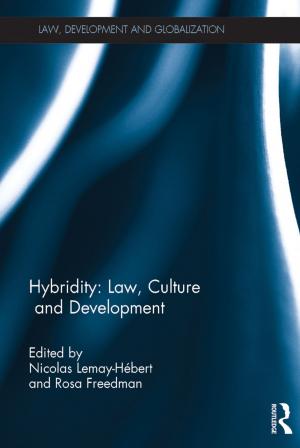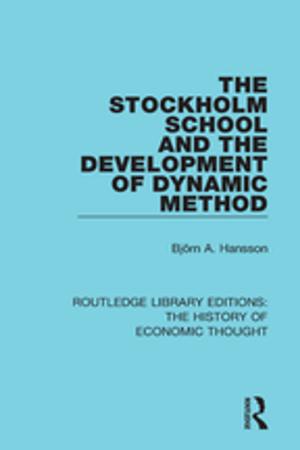| Author: | ISBN: | 9781351489003 | |
| Publisher: | Taylor and Francis | Publication: | July 12, 2017 |
| Imprint: | Routledge | Language: | English |
| Author: | |
| ISBN: | 9781351489003 |
| Publisher: | Taylor and Francis |
| Publication: | July 12, 2017 |
| Imprint: | Routledge |
| Language: | English |
In this fundamental contribution to the study and application of sociological theory, Wallace examines a wide range of theories within a framework that clarifies their interrelationships and illustrates their implications for empirical research. Wallace is able to point out the symbiotic relationships among these theories which, at first, may appear to be in direct opposition--or at least discord.
Sociological Theory begins with an original essay by the editor that introduces the reader to eleven general theoretical viewpoints. He calls these ecologism, demographism, materialism, psychologism, technologism, functional structuralism, exchange structuralism, conflict structuralism, symbolic interactionism, social actionism, and functional imperativism. To do this, Wallace assembles selected readings by major theorists that provide detailed examples of each of the theoretical viewpoints discussed. The selections are keyed to the framework developed in the Introduction, so as to enable the reader to work back and forth between the general and the particular statements. Offering far more than a mere survey or an abstract critical analysis, In this way, Sociological Theory provides a learning matrix that facilitates comprehension and enables the reader systematically to expand his knowledge of sociological theory.
In developing his analytical framework, Wallace points out how these different types of theory complement rather than conflict with one another. Through this approach, he is able to show the distinctive level and scope of analysis of each theory to demonstrate why the sociologist must draw upon and integrate several viewpoints for interpreting research results and formulating hypotheses. A useful guide and reference work for researchers and teachers, the book is an excellent basic or supplementary text for all theory courses. As Robert K. Merton noted at the time of the original publication, "Sociological Theory is a bea
In this fundamental contribution to the study and application of sociological theory, Wallace examines a wide range of theories within a framework that clarifies their interrelationships and illustrates their implications for empirical research. Wallace is able to point out the symbiotic relationships among these theories which, at first, may appear to be in direct opposition--or at least discord.
Sociological Theory begins with an original essay by the editor that introduces the reader to eleven general theoretical viewpoints. He calls these ecologism, demographism, materialism, psychologism, technologism, functional structuralism, exchange structuralism, conflict structuralism, symbolic interactionism, social actionism, and functional imperativism. To do this, Wallace assembles selected readings by major theorists that provide detailed examples of each of the theoretical viewpoints discussed. The selections are keyed to the framework developed in the Introduction, so as to enable the reader to work back and forth between the general and the particular statements. Offering far more than a mere survey or an abstract critical analysis, In this way, Sociological Theory provides a learning matrix that facilitates comprehension and enables the reader systematically to expand his knowledge of sociological theory.
In developing his analytical framework, Wallace points out how these different types of theory complement rather than conflict with one another. Through this approach, he is able to show the distinctive level and scope of analysis of each theory to demonstrate why the sociologist must draw upon and integrate several viewpoints for interpreting research results and formulating hypotheses. A useful guide and reference work for researchers and teachers, the book is an excellent basic or supplementary text for all theory courses. As Robert K. Merton noted at the time of the original publication, "Sociological Theory is a bea















